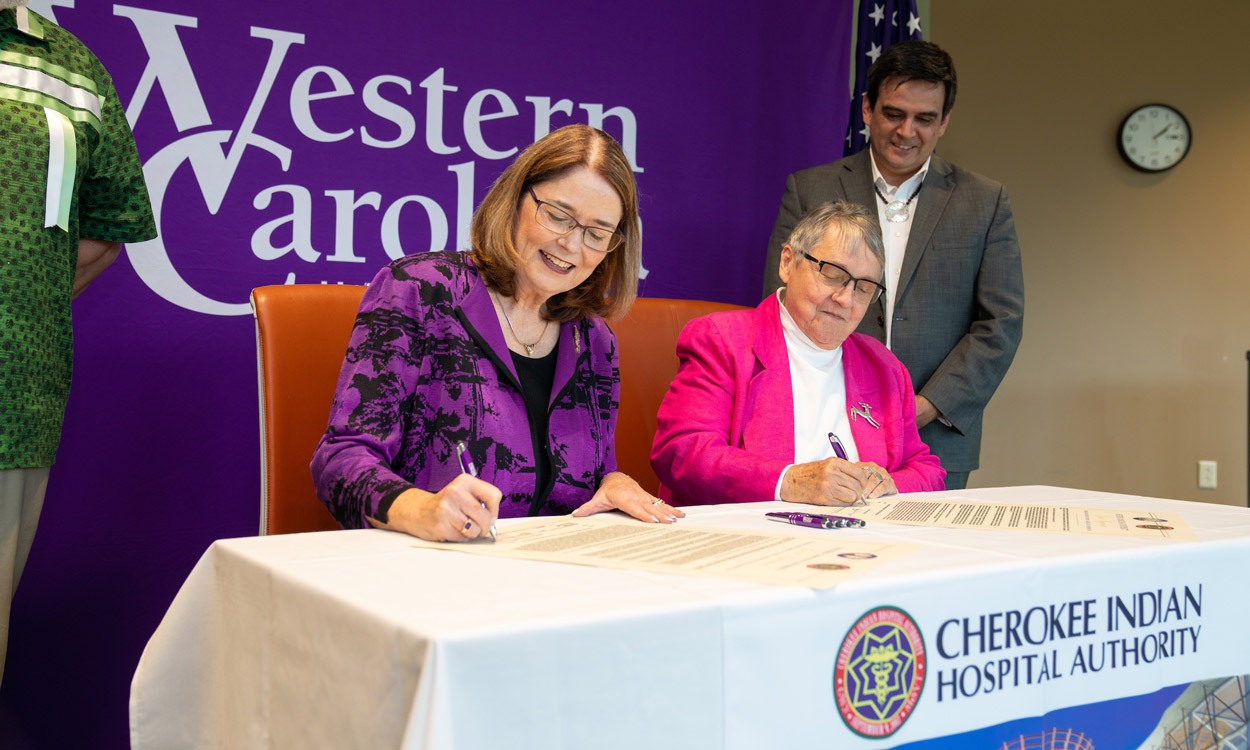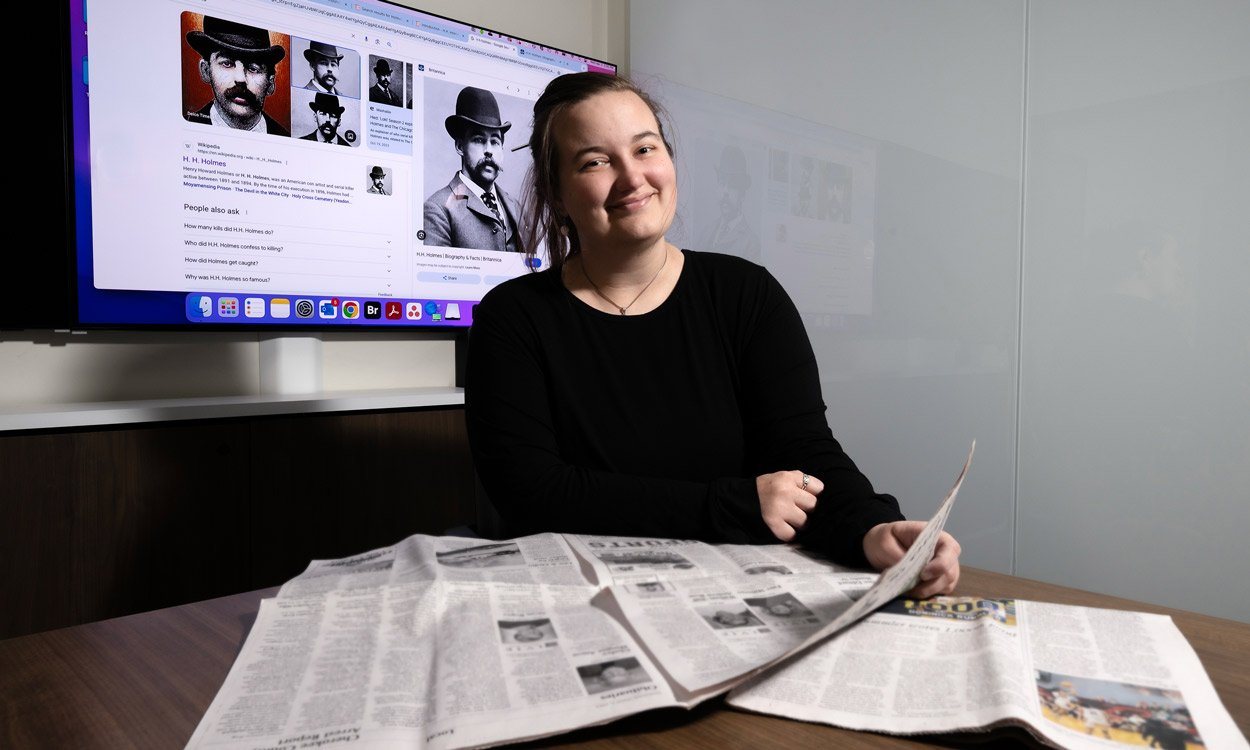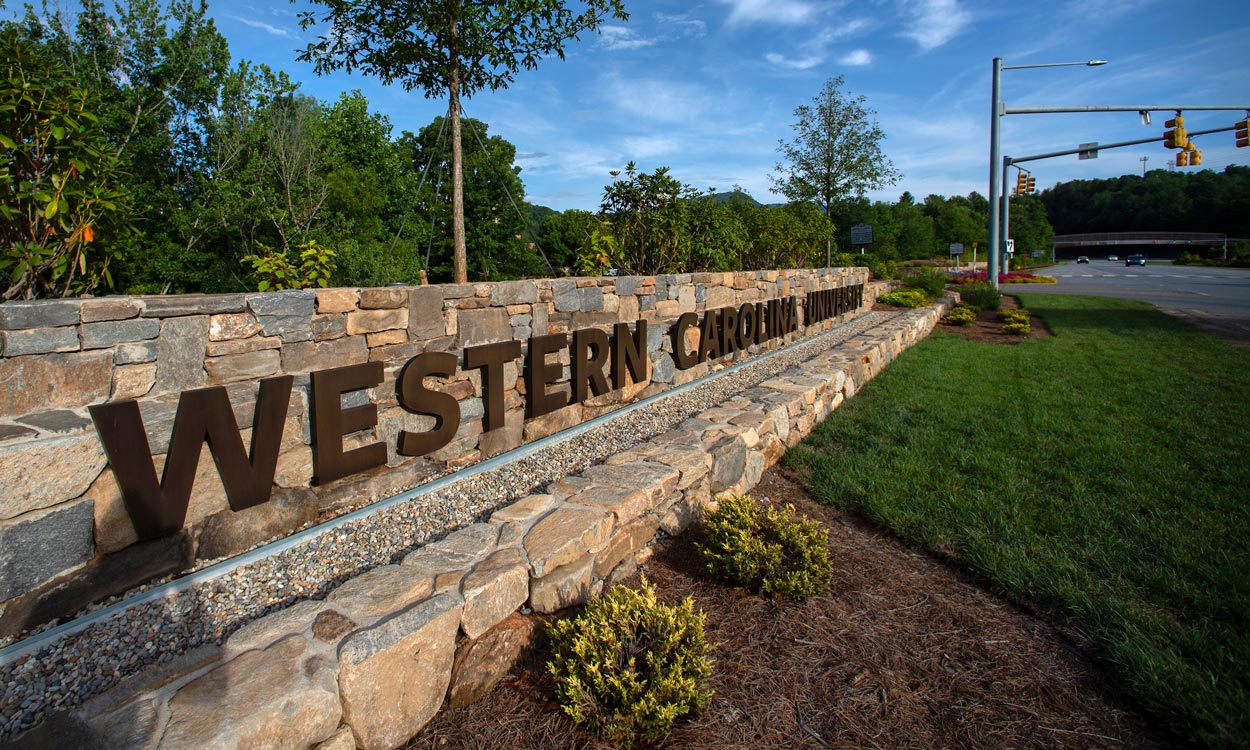WCU, Cherokee Indian Hospital Authority sign agreement for McKee Clinic funding

WCU Chancellor Kelli R. Brown (left) and Cherokee Indian Hospital Authority Governing Board chair Carmaleta Monteith signed an agreement for CIHA to establish a fund to provide programmatic support for WCU’s College of Education and Allied Profession’s McKee Assessment and Psychological Services Clinic.
By Julia Duvall
Throughout Western North Carolina, there is a critical need for pediatric psychologists to conduct testing and provide other resources needed for children to be successful in and out of the classroom.
Continuing a long tradition of partnership and community between Western Carolina University and the Eastern Band of Cherokee Indians, WCU and the Cherokee Indian Hospital Authority decided to work together to meet the needs of children living in the Qualla Boundary and beyond.
On April 1, WCU Chancellor Kelli R. Brown and CIHA Governing Board chair Carmaleta Monteith signed an agreement for CIHA to establish a fund to provide programmatic support for WCU’s College of Education and Allied Profession’s McKee Assessment and Psychological Services Clinic.
The Cherokee Indian Hospital Authority – McKee Clinic Partnership Fund, created with a total grant commitment of $435,832, will span across three years.
“This partnership is a perfect example of how we are so much better when we work together,” Brown said. “I truly believe that we will all reap the benefits for years to come.”
By adding a fixed-term psychology faculty member to WCU's psychology program, the university will be able to increase the capacity to serve CIHA patients as well as expand training opportunities for WCU clinical psychology master’s and doctoral students.
“I’ve heard from our staff that there is woefully inadequate access to testing, particularly for kids in our region,” said Casey Cooper, CIHA CEO and member of WCU’s Board of Trustees. “There are kids who are unnecessarily stressed and anxious because they are sitting in a classroom somewhere and no one has identified what they need to be able to learn. Eventually, they just give up when in fact they are bright and beautiful and just need access to the right resources to thrive.”
After hearing from Tribal Council chairman Mike Parker about the need for more access to testing and after discussing this need with Kim Winter, dean of the College of Education and Allied Professions, things started coming together for the partnership.
“When my grandson was around 5 or 6, we noticed he had a tough time reading and this was during the height of the pandemic, so there was no way to get testing done at that time,” Parker said. “My grandson ended up having dyslexia and throughout this process I was asking myself how many other native children in our community are in this situation and what can be done?”
The goal of the fund is to expand assessment and therapeutic services to patients and clients of CIHA, while also scaling services of the clinic in support of expanded training and clinical experiences for WCU master’s and doctoral students in the clinical psychology program. This goal will be achieved through the hiring of a fixed-term faculty member who is a licensed, clinical psychologist with a pediatric focus.
“Our partnership with the Cherokee Indian Hospital Authority will allow us to increase access to comprehensive psychological assessment services to youth in Western North Carolina,” Winter said. “The McKee Clinic in the College of Education and Allied Professions has long served our region by providing access to assessments that help determine functioning in areas associated with learning, behavior, social skills, mood and anxiety, cognitive processing, as well as mental health.”
North Carolina meets only 12.1% of its mental health needs, designating the state as a health professional shortage area.
“We also know that at least 2,670,849 people in North Carolina live in a community that does not have enough mental health professionals and school-aged youth represent an underserved population,” Winter said.
Winter emphasized the need for accessible resources for children and their families.
“When there is difficulty accessing assessment services, or those services are cost prohibitive, many of our youth and their families go without,” she said. “By adding a provider, we can not only increase access to services, but also allow graduate students in our programs to have quality clinical experiences with professionals and programs at Cherokee Indian Hospital.”

